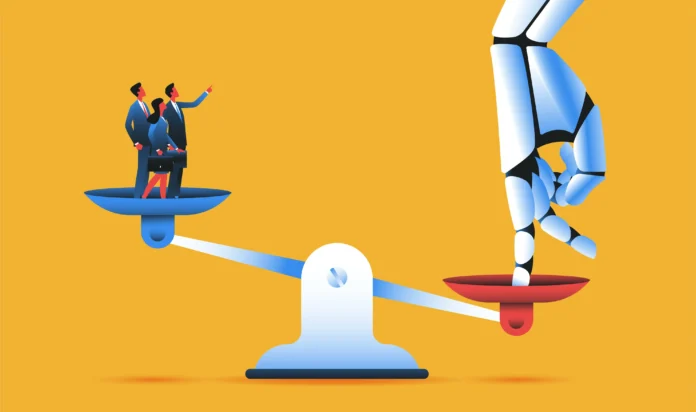By Javier Simon
As artificial intelligence (AI) permeates industries worldwide, many are anxious about the future of their jobs. It’s a valid concern.
Today, it seems AI can tackle nearly anything, with major companies investing billions in this technology. However, despite its rapid growth, AI has yet to master interpersonal communication, creativity, and critical thinking. Experts agree that jobs requiring these human skills are less likely to be automated.
“AI excels at logical and repetitive tasks, but it can’t replicate the creativity and emotional intelligence inherent in humans,” noted Smart Forum, a digital services provider. “Jobs that demand intuition, empathy, ethical judgment, emotional depth, and physical presence remain secure.”
Let’s explore some fields that are expected to thrive despite the rise of AI.
Health Care Professionals
While AI can aid in diagnosis and treatment, it cannot replace the human touch provided by experienced doctors, nurses, therapists, and psychologists. The Bureau of Labor Statistics (BLS) projects a 6% growth in registered nursing jobs from 2023 to 2033, outpacing the average for all occupations. This demand is driven by an aging population that requires more health care. Here are the median salaries for various health care roles:
- Registered Nurse: $93,600
- Physician and Surgeon: $239,200
- Dentist: $179,210
- Physical Therapist: $99,710
- Occupational Therapist: $98,340
Skilled Trades
Can AI swing a hammer? Not quite. Skilled laborers in construction, plumbing, electrical work, and carpentry rely on hands-on skills and real-time problem-solving—areas where AI struggles. The construction industry is booming, creating a high demand for skilled tradespeople. The job outlook for construction workers from 2023 to 2033 is projected to grow by 7%, faster than average. Here are median salaries for various trades:
- Plumber: $62,970
- Electrician: $62,350
- Carpenter: $59,310
- Construction Worker: $46,050
Educators
AI can solve complex math problems and answer questions across various subjects, but teaching extends beyond knowledge transfer. Educators build personal connections with students to meet their unique needs—an inherently human task that AI struggles to replicate. The median pay for high school teachers in 2024 was $64,580.
Creatives
While AI can generate articles and graphics, it cannot truly capture the unique essence of human creativity. Writers, musicians, and artists need not fear the rise of AI; their work remains irreplaceable.
Lawyers
You might think that feeding legal texts into an AI would create a competent lawyer, but machines lack the critical thinking and courtroom acumen that human lawyers possess. The mean annual wage for a lawyer is $151,160, according to BLS data.
Social Workers
Effective social work requires empathy, care, and a commitment to helping individuals through their toughest moments. This deeply human role is beyond AI’s capabilities. The field is expected to grow, with a 7% increase in social worker employment projected between 2023 and 2033.
The Bottom Line
AI presents both revolutionary potential and significant concerns. Many fear that machines will take over their jobs, but roles that rely on interpersonal skills, emotional support, and critical thinking are likely to endure the AI revolution.
The views and opinions expressed in this article are those of the author and do not necessarily reflect the official policy or position of Censational Market.

